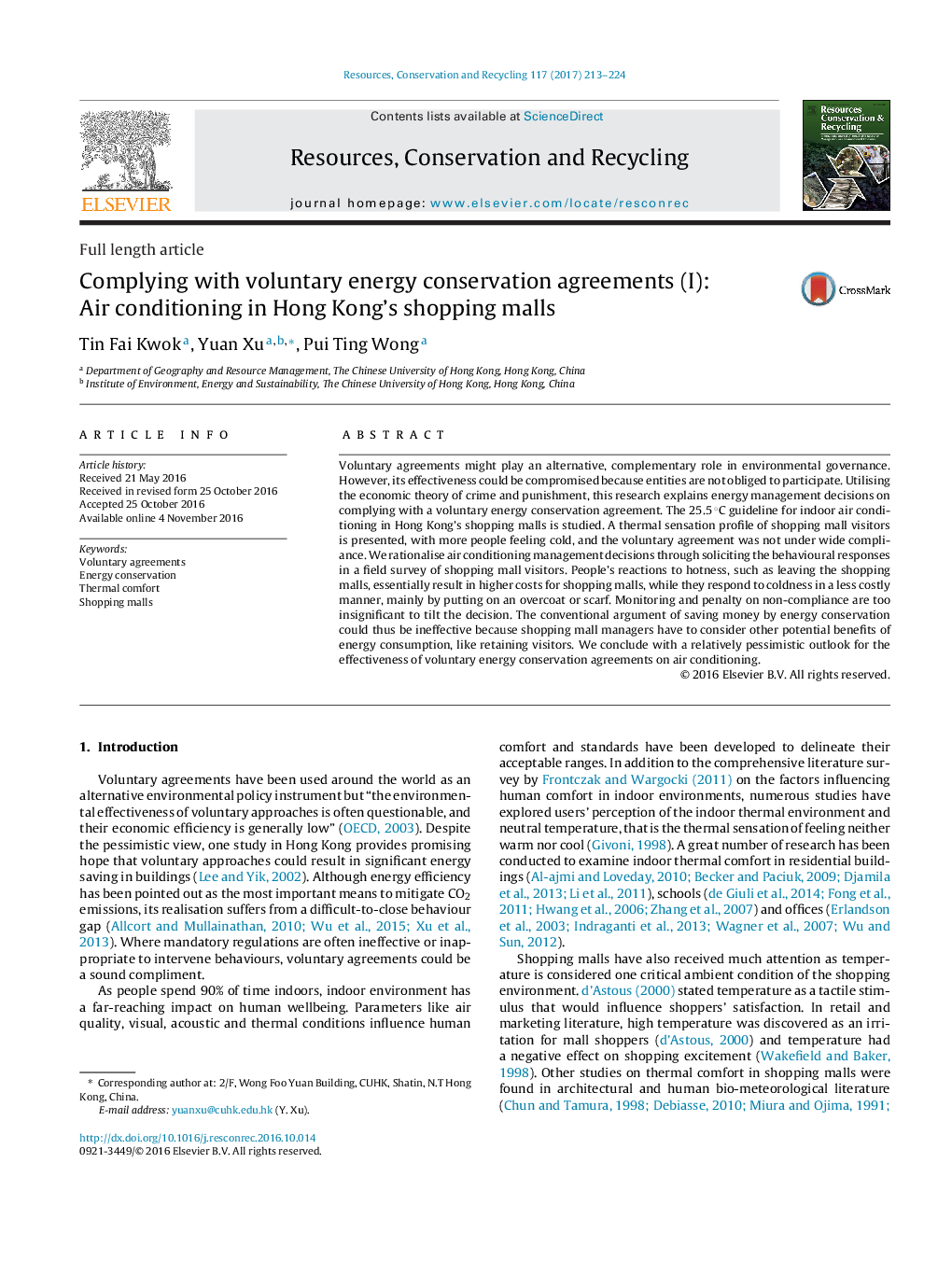| Article ID | Journal | Published Year | Pages | File Type |
|---|---|---|---|---|
| 5118902 | Resources, Conservation and Recycling | 2017 | 12 Pages |
â¢The crime and punishment model is used to explain low enterprise compliance rates.â¢A tilted-toward-coldness thermal profile of real-life mall shoppers is presented.â¢Hotness in shopping malls is more likely to chase away shoppers than coldness.â¢Voluntary agreements on temperature work poorly due to high net costs for firms.
Voluntary agreements might play an alternative, complementary role in environmental governance. However, its effectiveness could be compromised because entities are not obliged to participate. Utilising the economic theory of crime and punishment, this research explains energy management decisions on complying with a voluntary energy conservation agreement. The 25.5 °C guideline for indoor air conditioning in Hong Kong's shopping malls is studied. A thermal sensation profile of shopping mall visitors is presented, with more people feeling cold, and the voluntary agreement was not under wide compliance. We rationalise air conditioning management decisions through soliciting the behavioural responses in a field survey of shopping mall visitors. People's reactions to hotness, such as leaving the shopping malls, essentially result in higher costs for shopping malls, while they respond to coldness in a less costly manner, mainly by putting on an overcoat or scarf. Monitoring and penalty on non-compliance are too insignificant to tilt the decision. The conventional argument of saving money by energy conservation could thus be ineffective because shopping mall managers have to consider other potential benefits of energy consumption, like retaining visitors. We conclude with a relatively pessimistic outlook for the effectiveness of voluntary energy conservation agreements on air conditioning.
